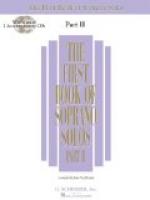“Stupid!” he muttered, and remembered an effort of his own, when a school-boy, to illuminate the mind of the gardener with a few scientific facts, only to be met with a loud guffaw of unbelief. Surely science had never yielded her treasures to sneering unbelief, but to humble, patient faith. Must he so find out God?
Again he pondered: Could God, if there were a God, be expected to be less mysterious, less wonderful, less unsearchable than the subtle forces found in nature, and actually utilized, but never understood?
“What is electricity?” he asked himself. “I do not know, but I can use it. I know it is. So may not God be, invisible, uncomprehended, but real, and demonstrable to the man who applies himself to know Him?”
Hubert was very near a determination to thus apply himself. But should God be sought for as a force or as a personality? The old argument, hackneyed but true, spoke to him: The presence of design argues a designer. No blind force ever clasped the petals of a lily together, to say nothing of the arrangement of a universe. Had Hubert known it, there was a passage of Inspiration which read:
“The invisible things of him from the creation or the world are clearly seen, being understood by the things that are made, even his everlasting power and Godhead.”
Now how to address himself to God—how to conduct this new experiment—was the question. He remembered the conditions of discipleship to science, and determined that he would follow them. First, there was child-likeness. A fragment of Scripture, words of Jesus Christ, came to him:
“Except ye . . . become as little children ye shall not enter into the kingdom of heaven.”
How simple the principle. No pride of supposed knowledge, no dogmatism of unbelief might be brought to the door of this mysterious kingdom by the man who would enter in. Then, he must follow the things revealed if he would know more. What did he know about God? Or what must be true of Him, granted that He is?
“If He is,” thought Hubert, “and is my Creator, then He must know me altogether.”
“Thou God seest me.”
It was a text—he did not know its connection—learned years before in Sunday-school, before his independence of spirit had withdrawn his neck from an unloved yoke. Now it spoke to him clearly. Surely God (if He were) must see him, and surely He must hear him. He did not consciously remember the words, “he that planted the ear, shall he not hear? He that formed the eye, shall He not see?” But thoughts of like nature passed through his mind. A creator who could bestow such marvelous faculties must Himself possess them in infinite measure. And a God who had given to His creatures such powers of communication, must surely have means to make Himself understood.




